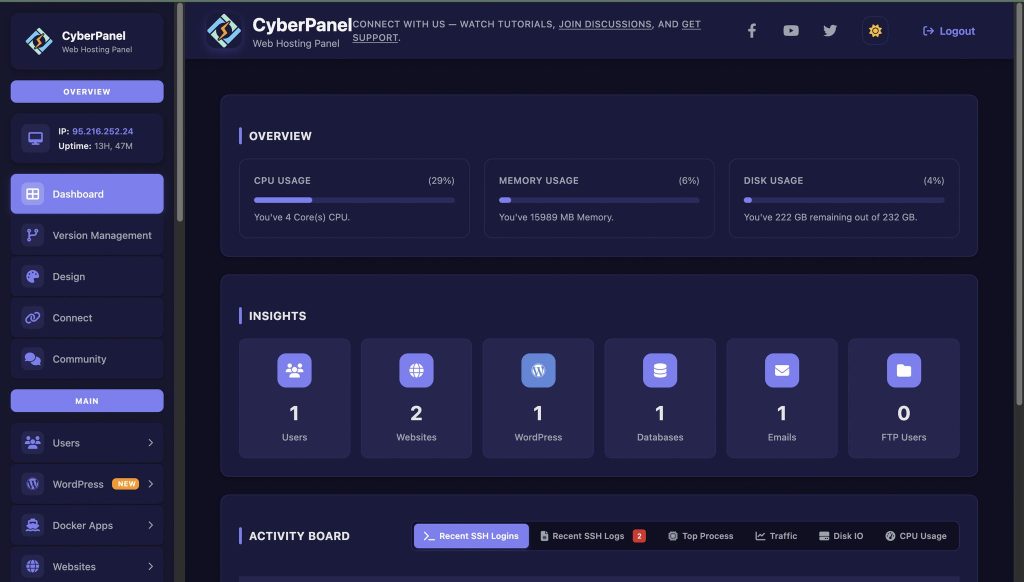The docker init command is especially useful when working with Docker Compose init, initializing SQL databases in containers, or even setting up Docker Swarm clusters. Instead of creating YAML or config files from scratch, Docker generates them for you, ensuring consistency and saving time.
For developers managing complex microservices or simple applications, docker init reduces errors and speeds up deployment. Whether you’re working with init SQL Docker, Docker Compose init container, or preparing a Docker init swarm, this command simplifies the starting point.
In this guide, we’ll explore what docker init does, how to use it with Docker Compose, and why it’s becoming an essential part of containerized development.
What is Docker Init?
Docker init is a command-line interface (CLI) command that creates starter configuration files for you. Docker init creates a docker-compose.yml file, and optionally, a .dockerignore file, or Dockerfile. This allows you to quickly get your containers started without having to create these files manually.
How Does Docker Compose Init Work?
Docker compose init bootstraps your Compose setup, creating a docker-compose.yml file with the required services. You can edit the docker-compose.yml file to add your databases, volumes, or networks.
Example:
Get exclusive access to all things tech-savvy, and be the first to receive
the latest updates directly in your inbox.
docker init
Output:
Created docker-compose.yml
Created Dockerfile
Created .dockerignore
Example: Init SQL Docker Container
If you want to initialize a MySQL database container, you can use:
docker init
Edit the generated docker-compose.yml to include MySQL:
services:
db:
image: mysql:8
environment:
MYSQL_ROOT_PASSWORD: rootpass
MYSQL_DATABASE: mydb
ports:
- "3306:3306"
Run:
docker compose up -d
Docker Compose Init Container (Multi-Service Example)
You can extend docker init to create multiple services. For example:
services:
app:
build: .
ports:
- "8080:8080"
db:
image: postgres:14
environment:
POSTGRES_PASSWORD: pass123
Here, app and db services are initialized for a simple project stack.
Using Docker Init Swarm
If you are preparing for orchestration, Docker init swarm sets up Docker Swarm mode:
docker swarm init
This outputs the manager node details and join token for worker nodes, making it easy to scale containers across multiple servers.
Reasons for Using Docker Init
- Time-saver since it generates your configuration files
- Error-reducer since it eliminates the access experience required for manually editing configuration files
- Great for beginners since it allows for a fast start
- Multi-service application support for both compose and swarm services
- Reduces complexity to use and manage multi-service applications
The Compatibility of CyberPanel using Docker Init

CyberPanel, a web hosting control panel, integrates seamlessly with Docker to allow the user to pull, operate and manage their containers from the CyberPanel interface. After you generate a configuration file using docker init, CyberPanel is used to run and manage the containers in the browser interface. This greatly reduces the complexity of using a container, giving those not as experienced in accessing the command line more experience to access and manage containers.
Wrapping Up!
The use of the Docker init command removes the complexity of writing config files by hand. No matter if you’re doing Docker Compose init, setting up init SQL Docker or configuring Docker init swarm; the docker init command simplifies your process.

For developers using CyberPanel, the process is even less complicated, as we utilize automatically generated configs and GUI-based container management. Begin your next project with docker init for significant time savings.
People Also Ask
What does Docker init do?
It generates starter configuration files like docker-compose.yml and Dockerfile for new projects.
How is Docker Compose init different?
It focuses on creating a docker-compose.yml file to manage multi-container applications.
Can Docker init be used for SQL databases?
Yes, you can extend the generated Compose file to include MySQL, PostgreSQL, or other databases.
Is Docker init available on all versions?
Docker init is supported in newer Docker CLI versions. Older versions may not include this command.



